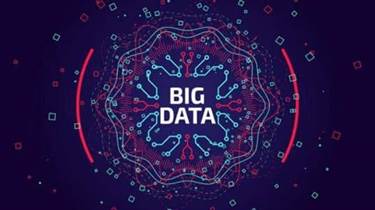You may use a PISP to make online payments without having to enter your credit or debit card information. Currently, open finance is still in the early development stages, while open banking has a legal and regulatory framework. Those types of data are open data , aggregated data , and transactional data . TechMagic is a full-cycle development company with a proven track record of 120+ projects for startups and enterprises. Our team of 300+ employees has provided end-to-end software development from the discovery phase and design to development, testing, and support for more than 9 years. While some startups have failed, many lessons can be learned from their experiences.

You may also be able to permit a third party to make payments on your behalf from your bank account. For example, companies that seek to gain access to consumers’ financial data are obligated to undergo thorough checks. Third-party service providers must demonstrate their security to banks before exchanging any data.
Recommended articles
Personally identifiable information should not be shared with third or fourth parties, and systems should be in place to delete or revoke access. Until token usage is widespread, credentials should be handled with the highest security protocols. Make sure that you know essential information about your consumers, including who they are and what they need based on a 360-degree view of their finances. In this same vein, you can help consumers redirect spending into investing accounts to change long-term outcomes.
- The AI/ML-powered Cleo app connects to bank accounts, monitors and categorizes transactions, and provides proactive financial advice and information.
- Analysing the data helps make relevant suggestions to different clients based on their financial habits, and this way increases client engagement.
- Open finance goes beyond the scope of data and services available at your bank, covering your entire financial footprint.
- Open Banking enables the average consumer to have more control over their banking and other financial data.
- We’ve mentioned above that banks have the option of creating custom APIs to best serve their customers.
However, with open banking, new players can access the same data, allowing them to create affordable alternatives to existing financial services. Open Banking is the structured sharing of financial data via APIs between financial service providers, based on the needs of and consent by their mutual customers. With consent, consumers and business clients can grant access to a trusted third-party provider of their choice. Open Banking is all about choice — consumers give consent to share their financial data with third parties of their choice.
What are the main misconceptions about Open Banking?
It helps to build up banks’ offerings on top of financial providers’ regulated infrastructure. Open banking is a system under which banks open up their application programming interfaces for third parties to develop new apps and services. In all of these cases and many more, open banking allows you to access innovative digital banking and financial services through the web or any smart device. In the UK, the Payment Services Regulations are the UK equivalent of PSD2 and create the legal and regulatory framework for open banking. Open banking is regulated in the UK by the Financial Conduct Authority . Only companies that are authorised by the FCA can use open banking to access financial information from consenting customers.

These APIs allow a company’s software to “plug into” and access information from the software at another company in real-time. In the UK, open banking began in 2018 with rules requiring nine of the biggest UK banks to adopt standards for allowing secure access to customer data. This was followed by EU Regulations requiring all banks and payment service providers to open up access to their customers’ financial data to authorised service providers, with their customers’ consent. It’s a little like the privacy permissions on your phone that allow an app to use your camera or location data, but significantly more robust. Open banking apps offer personalised financial advice, streamlined budgeting and savings tools, and access financial products and services from different providers.
What does ‘open banking’ mean?
Open banking describes the process of banks and other traditional financial institutions giving customers and third parties easy digital access to their financial data. This includes being able to download and share information about account balances, payments, transactions and investments. Open banking is designed to make our lives easier by allowing consumers and businesses to enable third-party apps to access financial data instantly and securely. Transfer money between accounts at different institutions to buy stocks?
Choosing the open banking strategy that fits a bank’s needs is now … – Finextra
Choosing the open banking strategy that fits a bank’s needs is now ….
Posted: Thu, 20 Apr 2023 07:00:00 GMT [source]
The European Commission and the UK’s Financial Conduct Authority are both investigating if there’s a need to regulate open finance. The goal is to promote greater financial health through competition and market innovation. Open banking has the potential to increase revenue streams while expanding customer reach for financial institutions – an opportunity incumbents shouldn’t ignore. It can also create banking as a service and banking as a platform revenue-sharing ecosystems, where incumbents give customers access to third-party-developed services while profiting from a subscription or referral basis. How this works in practice is that on a website, or in an app, you’ll be presented with information on a terms-of-service screen and be asked to check a box to opt in. If you don’t tick the box, your data will not be shared without your consent.
How do people benefit from open banking?
They should also tell you on their website or mobile app if they are authorized, along with their registration number. Companies involved in open banking should not automatically share consumer data with third parties. Open banking entirely relies on sharing the data, but as a consumer, you retain control and can revoke access to your data at any time.

With the fast-growing demand for financial services, incumbents are in constant competition with fintechs – but open banking offers them the opportunity to combat these pressures by instead partnering with them. Benefits include increased availability of financial services, dashboard view of money, and linking https://globalcloudteam.com/ bank accounts to loyalty programs and third-party payments. Open banking proponents claim it increases the availability of financial services, like making it easier to exchange financial data with your mortgage lender or accountant. It also allows you to do things like link a bank account to a loyalty program.
Advantages to Setting Up Multiple Bank Accounts
At the same time, fintechs have introduced various solutions that improve payment flows, make money borrowing easier, and simplify investing money. In certain cases, open banking is bringing digital financial tools to more people, providing small loans and credit for people and businesses who previously couldn’t access these services. New tools integrate with back-office systems to allow companies to manage their payments and collections, make real-time bank transfers, and achieve greater visibility over their finances. Due to a lack of regulatory framework and government initiatives to support open banking, U.S. companies that want to implement this technology are largely on their own.

Company is a licensed e-money institution which has the right to execute activities related to issuance of e-money and provision of payment services around the European Union. Verified Payments UAB is supervised by Bank of Lithuania under the Electronic Money Regulations (Licence No. 27). It provided an opportunity for banks to stay ahead of the competition.
Here’s an “Open Banking” definition we all can understand
After you agree to share your data, the app or service provider will send a request to your bank, which will then process it and grant access to your details. You can also withdraw your permission at any time and all open banking providers must ask you to renew your consent every 30 months. These open banking services allow consumers to view their accounts in one place, or pay from their bank without having to enter credit card details. TrueLayer’s APIs are fully compliant with UK and European Open Banking standards.

Leave A Comment